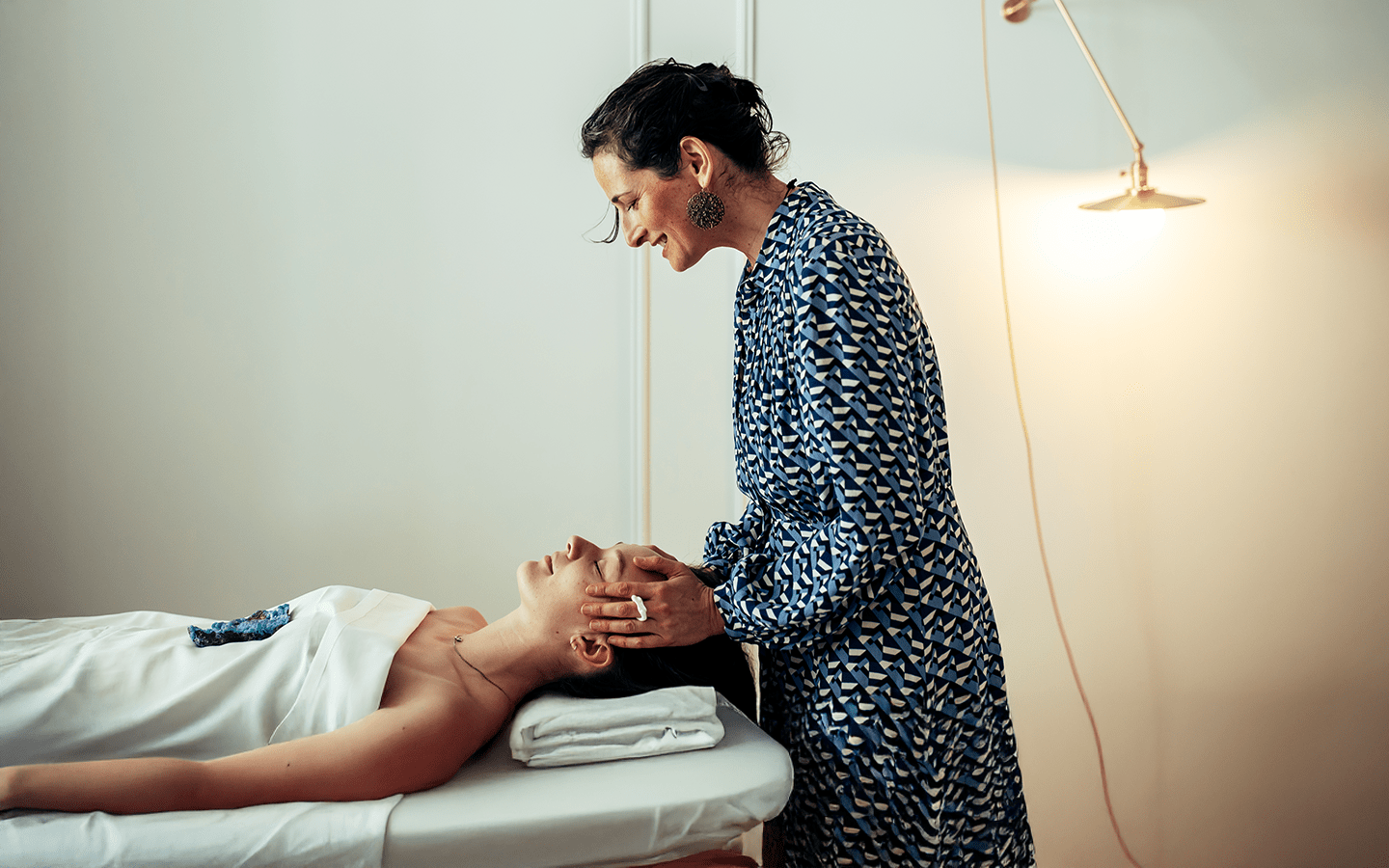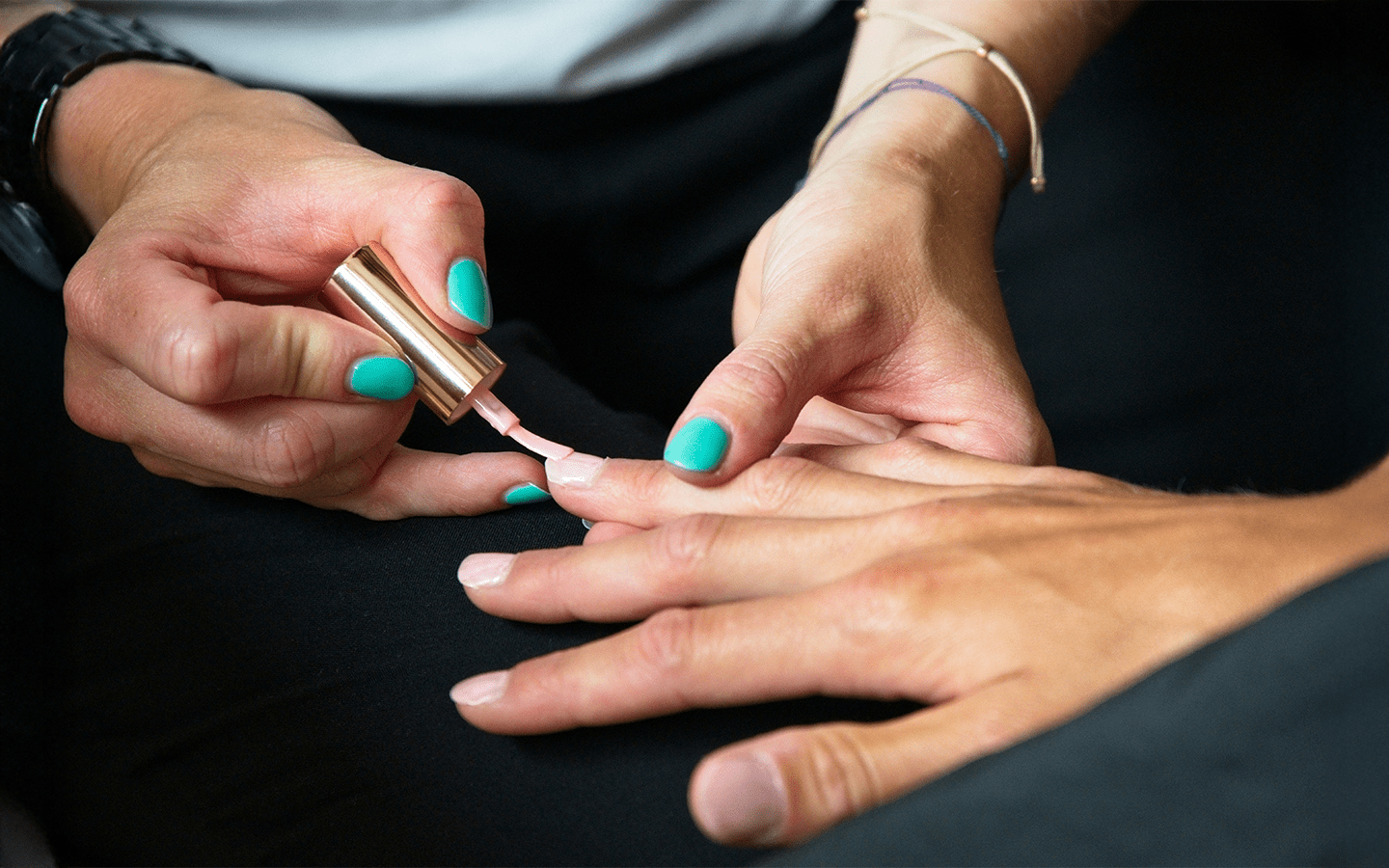
How Do You Know If Acupuncture Is Working? Here's What To Look For
Wondering how to tell if your acupuncture treatments are effective? There are clear signs to look out for, and this article will guide you through them. From immediate pain relief to improved sleep and enhanced overall well-being, I'll help you recognize how you know if acupuncture is working for you.
Key Takeaways
-
Immediate signs of acupuncture effectiveness include pain relief, relaxation, and temporary discomfort at needle sites.
-
Consistent acupuncture treatments are essential for long-term pain management and improvement of chronic conditions, such as insomnia and digestive health.
-
Incorporating lifestyle changes alongside acupuncture enhances its benefits, and selecting a qualified practitioner is crucial for safety and efficacy.
Recognizing Initial Signs of Improvement
The alleviation of intense pain often serves as one of the clearest indications that acupuncture is effective. A considerable number of patients have noted a dramatic decrease in their discomfort right after undergoing their initial treatment session. This rapid effect typically results from the activation of natural analgesics within the body and the diminishment of inflammation at targeted points, since acupuncture aims to stimulate these areas to foster recovery.
Following sessions of acupuncture, individuals commonly experience profound relaxation, which may lead to better sleep quality and an overall sense of serenity. It’s quite normal for patients to feel somewhat sleepy or even blissful post-treatment, signaling that the effects are beginning to manifest.
Although there might be some slight unease such as mild tenderness or trivial bleeding where needles were inserted, these minor reactions suggest that your body is reacting positively towards healing through treatment. These symptoms diminish over several weeks as your body becomes accustomed to acupuncture therapy sessions.
Enhanced Pain Management
The practice of acupuncture is highly regarded for its effectiveness in treating chronic pain conditions. Studies have found that ongoing courses of acupuncture treatments can outperform traditional medical care when addressing issues such as myofascial pain, headaches, and persistent pain syndromes. Acupuncture works by focusing on precise trigger points to alleviate the severity of pain and enhance physical functionality.
Among the notable advantages of acupuncture is its potential to bolster the body’s own recuperative processes. With regular acupuncture sessions, patients may experience enduring relief from discomfort thanks to stimulation that prompts the release of endorphins and serotonin—natural analgesic compounds produced by our bodies. This aspect proves particularly valuable for those grappling with long-term ailments since it offers a viable method for natural self-regulation of their symptoms.
For sustained benefits, continuity in receiving acupuncture therapy is essential. Sporadic treatment might lead only to fleeting relief with a quick resurgence in symptoms, while consistent attendance fosters prolonged comfort and general wellbeing improvement. Typically practitioners advocate starting with one or two appointments weekly before gradually decreasing this frequency as there are signs of patient recovery.
As an adjunct or even alternative option alongside conventional Western medicine approaches—the latter frequently leveraging pharmaceutical solutions—acupuncture stands out due to its drug-free, non-surgical nature geared toward managing bodily aches effectively under professional supervision through Chinese medicine modalities—a choice increasingly favored by individuals looking forward to mitigating medication use while being supervised by a qualified medical doctor.
Better Sleep Quality
Acupuncture enhances the quality of sleep, leading to a more rested and rejuvenated feeling in patients post-treatment. This is attributable to its efficacy in diminishing pain and soothing the nervous system, thus facilitating improved sleep.
Studies suggest that for treating insomnia, acupuncture outperforms drug-based remedies. Those undergoing this treatment often report reduced interruptions during sleep and an overall enhancement of their sleep experience. This improvement is thought to stem from acupuncture’s role in stimulating the release of neurotransmitters that regulate sleep.
Improved Digestion
By targeting problems such as nausea and the movement of the gut, acupuncture enhances digestive wellness. It serves as a useful adjunctive treatment for patients undergoing chemotherapy by significantly reducing instances of vomiting and nausea.
Post-acupuncture, individuals frequently experience an increase in regularity concerning bowel movements and notice an improvement in their appetite. Meals tend to leave them feeling more content with diminished experiences of bloating and a reduction in cravings, signifying an optimization of the digestive system’s functionality.
Increased Energy Levels
Acupuncture has been found to enhance energy levels markedly. It achieves this by reestablishing the flow of energy and improving blood circulation, which together serve to alleviate fatigue and increase vigor. Following treatment, patients frequently report experiencing an ‘Acu-buzz,’ which is characterized by a tranquil sense of mental sharpness.
Such a surge in vitality can greatly elevate day-to-day efficiency and enrich one’s general well-being. The practice of acupuncture is essential in harmonizing the nervous system as well as optimizing metabolic processes, both of which are instrumental for providing that crucial lift in energy. Consequently, individuals undergoing acupuncture often notice they feel more animated with reduced exhaustion following their sessions.
Emotional Wellbeing and Mental Clarity
The impact of acupuncture extends to emotional and mental well-being, not just physical health. Patients typically experience a boost in their emotions, a decrease in stress levels, and an overall sense of calm after undergoing acupuncture. This is attributed to the stimulation of the central nervous system by acupuncture and its promotion of qi flow – the essential life energy within the body.
Regular engagement with acupuncture treatments often leads to diminished feelings of stress and anxiety. Acupuncture assists in balancing internal elements that cause emotional turmoil through the induction of endorphins and serotonin release. As a result, patients usually report feeling less moody or irritable while noting enhancements in productivity along with better mental clarity and focus.
Improvements are seen in respiratory patterns, which become more profound and relaxed due to these treatments. Amplifying one’s wellness sensation. Thus, embracing this holistic method for addressing emotional health allows individuals access to an effective strategy for managing daily stresses while improving their overall state of mental fitness.
Physical Health Indicators
Often, the efficacy of acupuncture can be observed through physical indicators such as enhanced circulation and an increase in warmth in the extremities. It is common for patients to experience a reduction in symptoms like cold hands and feet, which suggests improved blood flow throughout their bodies. These signs are crucial reflections of the beneficial influence that acupuncture has on one’s physical well-being.
Increased circulation aids in fostering a general feeling of warmth and energy within the body. When the energy flow within the body achieves greater equilibrium, these indications of physical health become more evident, Validating the success of this formorative treatment.
Reduced Symptoms of Chronic Conditions
Acupuncture has shown considerable effectiveness in the management of chronic conditions and mitigating related symptoms. In women, this translates to a reduction in the severity of menstrual pain and fewer premenstrual complaints. Acupuncture assists by enhancing blood circulation and harmonizing menstrual cycles, thereby providing relief from intense menstrual cramps.
Comparative research points out that acupuncture surpasses NSAIDs when it comes to controlling menstrual cramps and can markedly diminish menopausal symptoms such as hot flashes. This technique offers a natural way to mitigate menopausal discomforts by re-establishing balance within the body’s energy circuits, thus offering a comprehensive method for restoring wellness.
Acupuncture proves beneficial in treating disorders like GERD (gastroesophageal reflux disease), IBS (irritable bowel syndrome), and migraines. Research has found that migraine sufferers may experience benefits from acupuncture comparable to those provided by preventive medications. It might also aid in averting episodic migraines. These advantageous effects underscore acupuncture’s utility as an adjunctive therapy across diverse chronic ailments, fostering improved life quality for numerous individuals.
Long-term Benefits and Consistency
Maintaining the body’s equilibrium and enhancing overall health is best supported by regular acupuncture treatments. This ongoing practice helps not only in sustaining good health, but also assists in recuperating from injuries. Impressively, the advantageous outcomes of sustained acupuncture sessions have been found to persist even after a year of continuous treatment.
An initial course of weekly acupuncture sessions is common, transitioning to less frequent maintenance appointments as positive changes are observed in the patient’s condition. The success rate of this therapy depends on several factors including how often treatments are administered, individual responses to the therapy, characteristics specific to each medical condition being treated, and supportive habits such as proper hydration and stress reduction strategies.
To maximize the enduring rewards associated with acupuncture treatments over time, adopting additional healthy lifestyle adjustments proves fruitful. Incorporating a nutritious diet and mild physical activity along with relaxation practices like meditation or deep breathing exercises complements acupuncture’s effectiveness. These activities encourage healing within the body while helping sustain acupuncture’s therapeutic benefits through improved mental wellness and maintaining adequate levels of hydration.
What to Expect During Your First Acupuncture Session
At the outset of your initial acupuncture treatment, you’ll engage in a preliminary process that includes completing forms and participating in an assessment grounded in Traditional Chinese Medicine principles. This thorough examination allows the acupuncturist to customize your session based on individual health concerns.
Throughout the procedure, slender needles specific to acupuncture practice are carefully placed into designated points across your body. The needle insertion might cause a slight tingling initially, but tends to give way to sensations of warmth or profound calm as the treatment progresses while receiving acupuncture treatments.
The duration of an average acupuncture session ranges from 30 minutes up to an hour during which time the practitioner will continually monitor how comfortable you feel.
Tips for Maximizing Acupuncture Results
Maximizing the efficacy of your acupuncture treatments can be achieved by adopting healthy lifestyle habits that include maintaining a balanced diet, engaging in consistent physical activity, and utilizing stress reduction strategies. Additional supportive therapies such as lymphatic massage and aromatherapy may also amplify the positive outcomes of acupuncture by fostering general health.
Selecting appropriate nourishment prior to an appointment, opting for less heavy meals for instance, may enhance the impactfulness of treatment sessions. Employing stress-relief techniques like meditation and deep breathing complements the therapeutic journey, allowing you to fully experience all advantages offered by acupuncture.
Choosing the Right Acupuncture Practitioner

It is essential to choose an acupuncturist with the proper qualifications to guarantee a treatment that is both safe and effective. Seek out those who are not only licensed but also possess the necessary training and credentials. Inquiring about how many treatments you’ll require, the overall expense, and whether your insurance will cover it can aid in making a well-informed choice.
Recommendations from healthcare professionals or individuals within your personal network can be instrumental in locating a reliable acupuncture practitioner. The ambiance of the acupuncture clinic should contribute to a serene and nurturing experience throughout your treatment sessions.
Summary
Acupuncture provides a range of advantages, including quick relief from pain and enduring enhancements to overall health. Acknowledging the early indications of recovery and comprehending how acupuncture can bolster your physical, emotional, and psychological well-being will allow you to fully value its comprehensive method for maintaining wellness.
To optimize the benefits of your acupuncture treatments, it is crucial to adapt lifestyle modifications and select an adept practitioner. When combined with regular appointments and a nurturing setting, acupuncture serves as a potent instrument on your path to improved health and vitality.
Frequently Asked Questions
How quickly can I expect to see results from acupuncture?
You can expect to see results from acupuncture within a few sessions, though the timeline varies based on individual conditions and overall health.
Regular treatments often lead to quicker improvements.
What should I avoid before an acupuncture session?
To ensure the effectiveness of your acupuncture treatment, avoid alcohol, caffeine, and large meals beforehand.
This will help you achieve better results from your session.
Are there any side effects of acupuncture?
Acupuncture can lead to side effects such as soreness, fatigue, bruises, lightheadedness, and occasionally worsening of symptoms.
It’s important to consult with a qualified practitioner to understand the potential risks.
How does acupuncture benefit mental health?
Acupuncture is effective in enhancing mental health by stimulating the central nervous system, which helps alleviate anxiety and stress and promotes overall well-being. This holistic approach can provide significant relief for those struggling with mental health challenges.
What should I expect during my first acupuncture visit?
You can expect a comprehensive assessment of your medical history and symptoms during your first acupuncture visit, which will help the practitioner develop a personalized treatment plan tailored to your needs.













